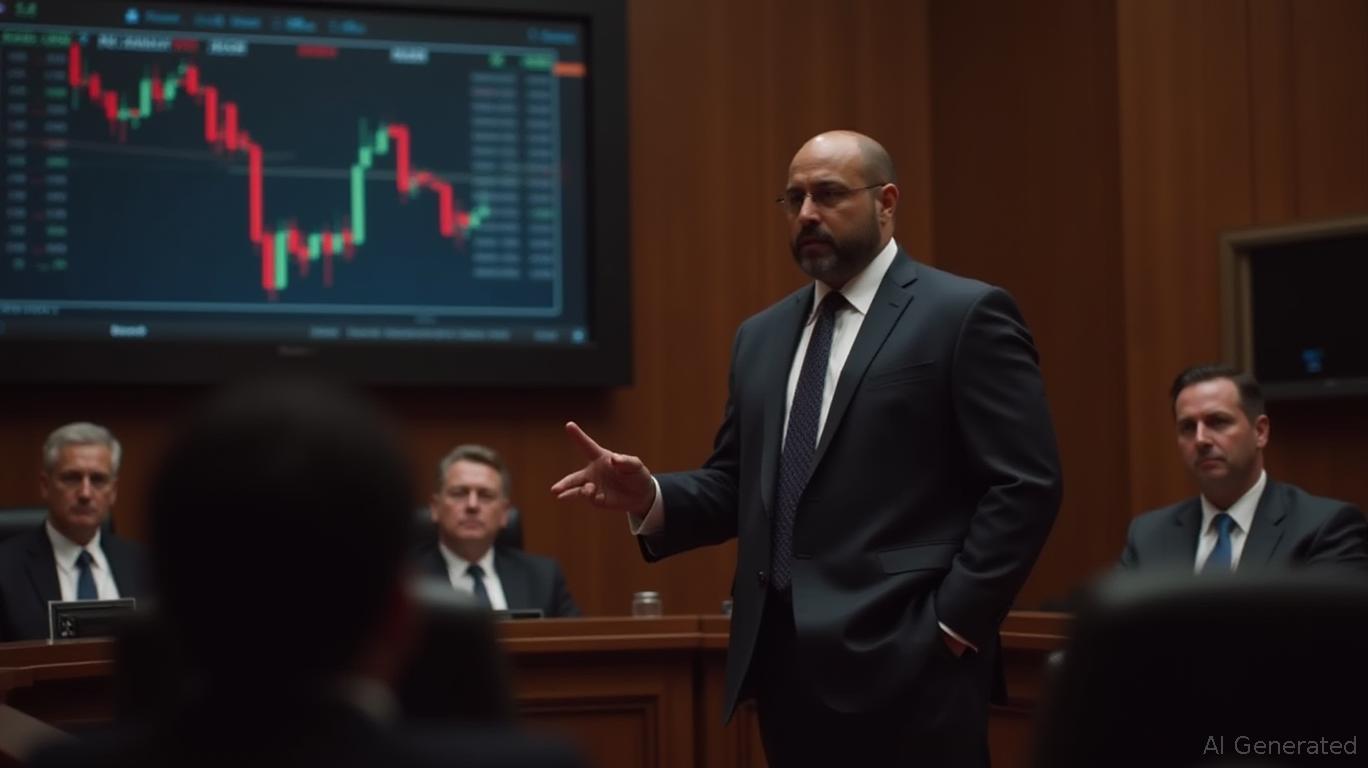Kalshi’s Federal Lawsuit Challenges CFTC Authority Amid Conflict With New York Sports Betting Prohibition
- Kalshi sues New York over sports betting ban, claiming CFTC's federal jurisdiction under the Supremacy Clause. - New York alleges Kalshi operates unlicensed contracts as "sports wagering," demanding compliance with state gambling laws. - Legal experts highlight federal courts' prior favor toward Kalshi, citing CFTC's 2020 DCM designation as regulatory shield. - Case could set precedent for state-federal regulatory conflicts, with Kalshi risking $50M+ annual revenue if banned in New York. - Mixed judicial
Kalshi, a prediction market platform registered with the CFTC, has initiated a federal lawsuit against the New York State Gaming Commission in an effort to halt the enforcement of the state's prohibition on its sports betting contracts. The company contends that the Commodity Futures Trading Commission (CFTC) has sole authority over derivatives trading under the Commodity Exchange Act, making New York's regulatory measures unconstitutional under the Supremacy Clause, as reported by a
The conflict arises from a cease-and-desist order issued by New York on October 24, which accused Kalshi of running an unauthorized mobile sports betting service. State officials classified Kalshi's offerings as "sports wagering" under local statutes, requiring the company to adhere to the same licensing, tax, and regulatory standards as conventional sportsbooks, according to

Legal analysts observe that Kalshi's tactic of initiating proceedings in federal court has proven advantageous in previous disputes. Daniel Wallach, an expert in gaming law, pointed out that this legal strategy shifts the focus to federal preemption rather than the contracts' legality. In comparable cases in Nevada and New Jersey, courts have issued preliminary injunctions in Kalshi's favor, determining that the CFTC's exclusive regulatory authority over swaps and futures overrides state laws, as referenced in a
The implications are significant for Kalshi, which projects that it could lose more than $50 million in annual revenue in New York if forced to discontinue its services. The company is also facing increasing regulatory scrutiny, with states such as Illinois and Arizona likely to adopt similar measures as New York. Wallach suggests that recent court decisions favoring state regulators, like Nevada's dismissal of Crypto.com's case, may encourage additional states to challenge prediction markets, as noted by Decrypt.
The New York gaming commission has yet to issue a public statement regarding the lawsuit but has reiterated its mandate to uphold state gambling regulations. The commission's cease-and-desist notice warned of "imminent civil penalties and fines" should Kalshi persist in offering sports event contracts, which the commission sees as undermining the state's regulated sports betting sector, according to Sports Betting Dime.
The resolution of this legal battle could influence the future relationship between state and federal authorities in the fast-changing prediction markets industry. With more than 1.2 million event contracts traded each year on CFTC-supervised platforms, the CFTC has established itself as a central authority in preventing inconsistent regulatory approaches, as highlighted by Coinotag.
Disclaimer: The content of this article solely reflects the author's opinion and does not represent the platform in any capacity. This article is not intended to serve as a reference for making investment decisions.
You may also like
Solana News Today: Western Union's Stablecoin Competes with Zelle in the Remittance Innovation Race
- Western Union launches USDPT stablecoin on Solana in 2026 to disrupt $150B cross-border remittance market with instant, low-cost transfers. - Partnering with Solana Foundation and Anchorage Digital, USDPT leverages Solana's 65,000 TPS capacity and $0.00025 per-transaction cost for global remittances. - GENIUS Act regulatory clarity and $312B stablecoin market growth enable institutional adoption, with JPMorgan and PayPal already participating. - Competing with Zelle's stablecoin expansion, Western Union'

Circle's Arc Blockchain Sets Out to Develop the Internet's Financial Operating System Supported by Institutions
- Circle launches Arc blockchain testnet with major institutions to build decentralized financial infrastructure. - Arc offers USD-based fees, fast settlements, and privacy controls, aiming to streamline global finance. - Stablecoin market growth and regulatory progress drive adoption, but high fees on congested chains remain a challenge. - Institutional collaboration and projects like Arc highlight crypto's maturation in reshaping digital finance.

Global shift to renewable energy slows down amid tariff disputes and Saudi Arabia's environmental goals
- Saudi Arabia advances 4.5 GW renewable projects under NREP, including record-low-cost solar/wind initiatives aligned with Vision 2030. - U.S. 50% tariffs on Indian goods and protectionist policies risk disrupting global energy collaboration, per Outlook India and PV Magazine. - Executive Order 14318 prioritizes nuclear/natural gas infrastructure, raising fossil fuel vs. renewables balance concerns in U.S. strategy. - Experts warn tariffs create artificial scarcity and inflate clean energy costs, threaten

Judge Blocks Trump’s ‘Politically Driven’ Firings Amid Shutdown Power Battle
- A federal judge blocked Trump's "politically motivated" RIF layoffs during the 28-day shutdown, halting 4,100+ job cuts targeting education/health sectors. - Unions accuse the administration of weaponizing layoffs to pressure Congress, while the White House defends cuts as necessary for military funding. - A $130M private donation to cover military pay faces legal scrutiny for violating the Antideficiency Act, highlighting shutdown-era funding controversies. - The crisis mirrors Trump's 2019 shutdown, wi
